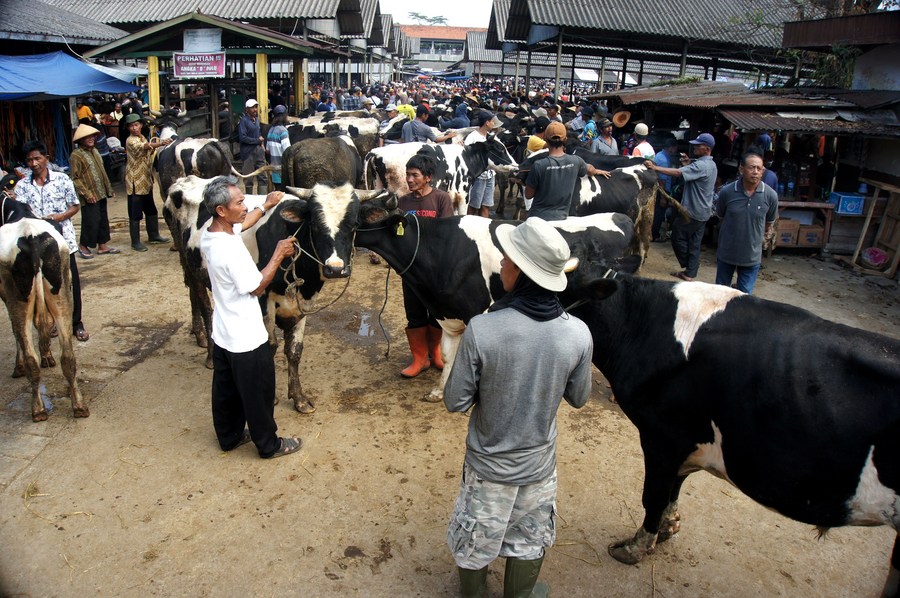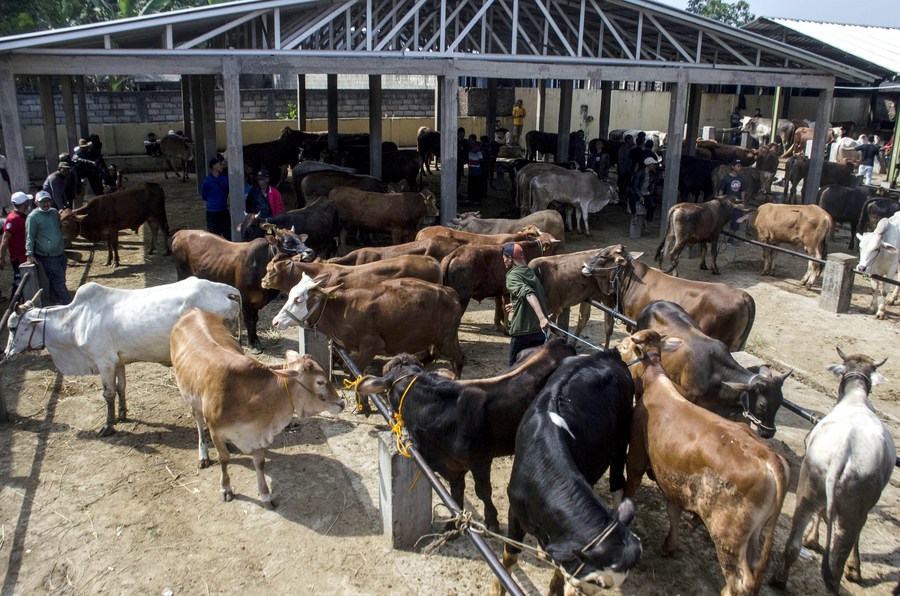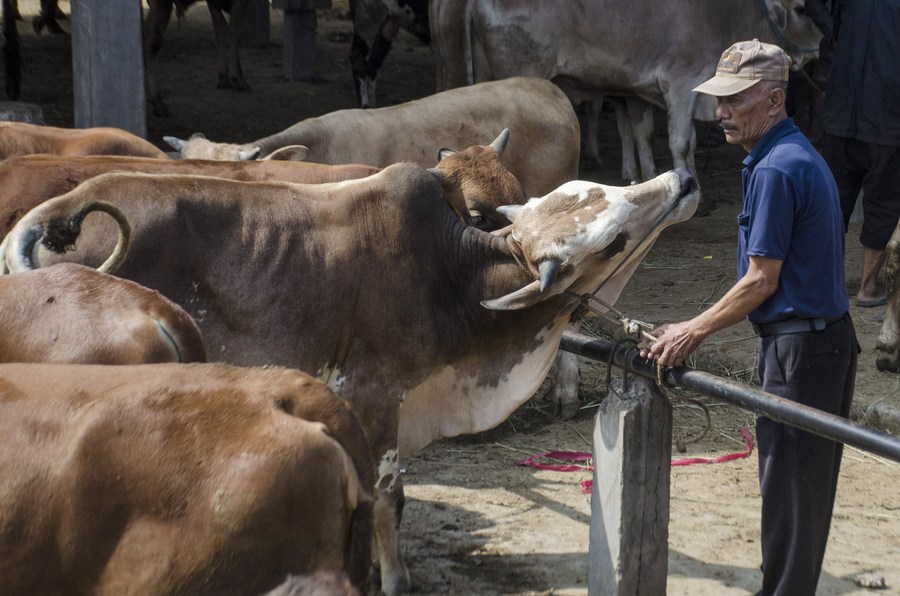
People are seen at a livestock market ahead of Eid al-Adha in Ambarawa district, Central Java, Indonesia, June 26, 2023. (Photo by Kalila/Xinhua)
Indonesian Agriculture Minister Syahrul Yasin Limpo said that all cattle, mainly cows and buffaloes, as well as goats and sheep, were "generally safe" as they must have passed various physical checks and been vaccinated by the regional governments to ensure their health conditions.
by Nurul Fitri Ramadhani
JAKARTA, July 3 (Xinhua) -- The Indonesian government has tried to ensure that livestock distributed during the Eid al-Adha holiday are safe for consumption as animal diseases infected livestock in several regions.
Indonesian Agriculture Minister Syahrul Yasin Limpo said on Thursday that all cattle, mainly cows and buffaloes, as well as goats and sheep were "generally safe" as they must have passed various physical checks and been vaccinated by the regional governments to ensure their health conditions.
"This step is taken to ensure that the livestock being sold are in healthy condition and safe for consumption, particularly those to be sold as 'qurban (sacrifice)' for Eid Al Adha," Limpo told reporters in Bogor, West Java province.

Cattle are seen at a livestock market in Sumedang, West Java, Indonesia, on June 24, 2023. The local animal market is ready for buyers to purchase sacrifices ahead of the Muslim festival Eid al-Adha, which will start on June 28 this year. (Photo by Septianjar Muharam/Xinhua)
Eid al-Adha is one of the largest annual religious days for Muslims worldwide. Muslims usually sacrifice livestock and distribute the meat to their families and poor people as part of religious rituals.
Data from the Agriculture Ministry showed that this year there were 1,849,385 livestock that became sacrificial animals across the Southeast Asian country.
Just before this year's Eid al-Adha festivity, the three-day holiday from June 28 to June 30, hundreds of cows had been infected by lumpy skin disease (LSD) since last month, reports said.
Although the disease is not zoonotic or not infectious to humans, it causes major complications to cattle, such as weight loss, decrease in milk production, infertility, and skin damage.
Besides LSD, Indonesia is also still making efforts to fight against the spread of highly contagious Foot-and-Mouth (FMD) disease. The outbreak has occurred since April last year. As of June 23, the archipelagic country has recorded 4,499 active FMD cases in cows spreading across 18 provinces.

A dealer is seen at a livestock market in Sumedang, West Java, Indonesia, on June 24, 2023. The local animal market is ready for buyers to purchase sacrifices ahead of the Muslim festival Eid al-Adha, which will start on June 28 this year. (Photo by Septianjar Muharam/Xinhua)
In West Java province, Indonesia's most populous province, the regional government also focused on monitoring the spread of anthrax, a serious infectious disease caused by the bacterium.
Head of the Animal Hospital Unit from the province's Food Security and Animal Husbandry Agency, Yoni Darmawan, said recently that West Java had historical records of anthrax outbreaks.
The Indonesian government also distributed millions of doses of vaccine to cure the infected cows and avoid healthy animals from being infected.
"The livestock that are safe to be sold should have ear tags, meaning they have been vaccinated and have passed through strict screening from local authorities," Limpo said.
In the capital city of Jakarta, the provincial government has warned the citizens to throw away the waste of sacrificial animals from Eid al-Adha to proper places.
"Many people often carelessly throw away the waste of sacrificial animals, including the innards and entrails. That could not only spread disease but also damage the environment," head of Jakarta Environment Agency Asep Kuswanto said on Thursday. ■












